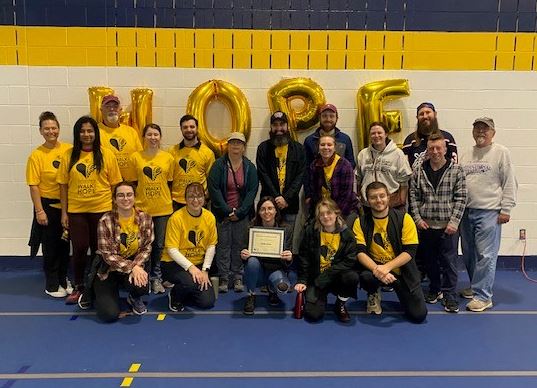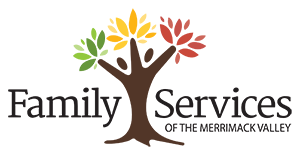Samaritans Program Overview
Family Services’ Samaritans of Merrimack Valley program strives to reduce the incidence of suicide throughout Massachusetts through a menu of prevention and post-vention services. The Samaritans is a member of the Massachusetts Coalition for Suicide Prevention and the Northeast Regional Coalition for Suicide Prevention.
To inquire about any of the services described below, please complete the form at the bottom of this page or call 978-327-6671.

suicide & crisis Lifeline
Family Services’ Suicide & Crisis Lifeline also plays a vital role in reducing the incidents of suicide. Learn more about the Lifeline.
If you or a loved one are having emotional distress or thoughts of suicide, call 988 to connect with a lifeline specialist for support.
Trainings
Samaritans of Merrimack Valley offers two free, Department of Public Health-funded trainings for “gatekeepers” to reduce the incidence of suicide among 1) people ages 55 and older and 2) middle aged men. Attendees learn how to recognize the risk factors, warning signs, and protective factors for suicide, as well as how to talk with an individual at risk. Click Here for more information and registration.
Attempt Survivor Support group
The Samaritans of Merrimack Valley hosts a support group for individuals over age 18 who have attempted suicide in the past. Participants gain comfort from others with a shared experience and discuss topics such as safety planning, coping skills, self-care and processing past events. This group is held virtually and is confidential, free and led by a peer attempt survivor. Pre-registration is required.
Second virtual group coming in April, 2025. Inquire below.
Outreach & Education
Samaritans staff provide educational support for schools, mental health providers, businesses, youth and senior centers, civic organizations, faith-based institutions, first responders, and others. Samaritans provides information to help the audience identify individuals who may be at risk, how to talk with them, and provides resources to get them the help they need.
Loss survivor Support group
Safe Place Support Group for adults (18+) who have lost a loved one to suicide. Meetings are facilitated by a peer suicide survivor and are confidential and free. Meeting are held in person on the 2nd & 4th Tues. of each month 7:00-8:30 p.m. Saint Michael Parish, No. Andover. Prior registration not required.
Virtual Safe Place group coming in April, 2025. Inquire below.
LGBTQIA+ Support group
Recognizing the unique circumstances and mental health challenges faced by the LGBTQIA+ community, the Samaritans of Merrimack Valley, with funding provided by the Dept. of Public Health will be offering a new virtual peer support group for adult (18+) members of the LGBTQIA+ community. This free, confidential space will be held to for attendees to share challenges and coping strategies, and find community with peers.
New virtual group coming in April, 2025. Inquire below
